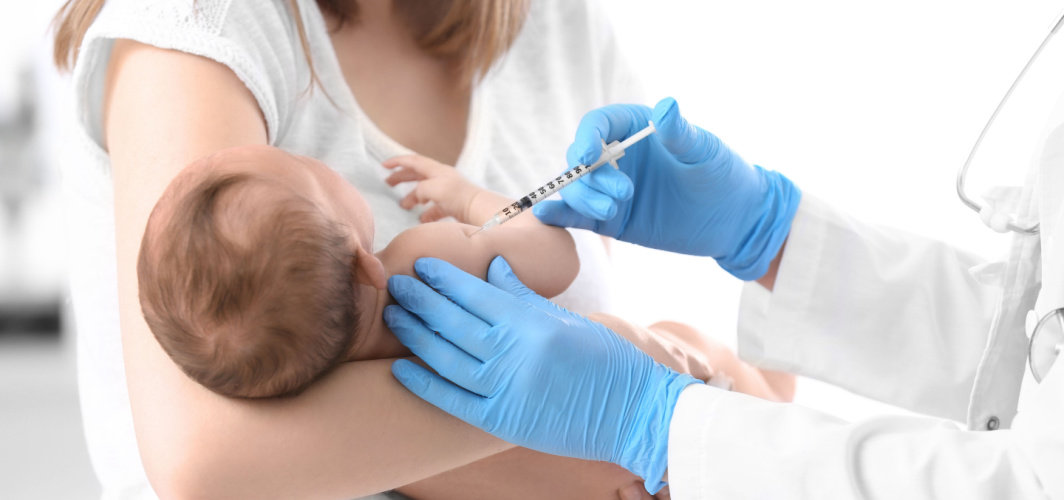- Home
- Blog
- Mom & Baby Care
The A to Z of Infant Hygiene
Mom & Baby Care
The A to Z of Infant Hygiene
By - 28 June 2023
Share this article
0
0 like

As a parent, keeping your child healthy and safe is your top priority. One of the most effective ways to do this is by maintaining proper hygiene. Babies are vulnerable to infections, and it is crucial to keep them clean and germ-free.
Maintaining proper baby hygiene can prevent various illnesses and infections that affect your baby's overall health. Babies have a weaker immune system than adults, making them more susceptible to infections. Proper hygiene practices can prevent bacteria and viruses that cause illnesses like colds, the flu, and diarrhea.
Factors that affect baby hygiene
As a new parent, it is essential to understand the factors that can affect your baby's hygiene. Proper hygiene can help prevent infections and keep your little one healthy. Here are some of the key factors that you should consider:
1. Diapering
The way you change your baby's diaper can significantly impact their hygiene. It is crucial to change your baby's diaper frequently to prevent diaper rash and infections. Ensure that you use quality diapers and wipe your baby's bottom thoroughly after each change. Also, make sure to wash your hands before and after changing your baby's diaper to prevent the spread of germs.
2. Bathing
Bathing your baby is an essential part of their hygiene routine. However, too much bathing can strip your baby's skin of natural oils, causing dryness and irritation. On the other hand, insufficient bathing can lead to skin infections. Experts recommend bathing your baby two to three times a week using lukewarm water and mild baby soap. Nail care is also important. Trim your baby's nails regularly to prevent scratches and cuts. Use baby nail clippers or a file and be careful not to clip the skin.
3. Clothing
Your baby's clothing can also impact their hygiene. It is crucial to choose breathable fabrics that do not irritate your baby's skin. Ensure that you wash your baby's clothes using a gentle detergent and avoid fabric softeners or dryer sheets that can cause allergies.
4. Environment
The environment in which your baby lives can also affect their hygiene. Keep your baby's room clean and dust-free. Use a humidifier to maintain proper humidity levels in your baby's room, which can prevent dry skin and respiratory infections.
5. Breastfeeding
Breastfeeding your baby can also impact their hygiene. Breast milk contains antibodies that strengthen your baby's immune system, preventing infections. However, it is essential to practice appropriate breastfeeding hygiene by washing your hands before feeding your baby and ensuring your nipples are clean.
Understanding the factors that affect your baby's hygiene is crucial for new parents. By following these tips, you can keep your little one healthy and prevent infections. Remember always to consult with your pediatrician if you have concerns about your baby's hygiene routine.
Infant hygiene tips:
As a parent there are some more thing that you should be mindful of, they are as follows:
- Hand washing: Hand washing is one of the most important hygiene practices to prevent germ spread. Wash your hands frequently, especially after changing a diaper, using the bathroom, or handling food.
- Clothing: Choose clothing that is comfortable and easy to care for and wash your baby's clothes frequently to keep them clean and fresh. Avoid using fabric softeners or harsh detergents that can irritate your baby's skin.
- Oral hygiene: A healthy oral hygiene is essential for your baby's health and well-being. By establishing healthy habits early on and making oral hygiene a priority in your daily routine, you can ensure that your baby's teeth and gums stay in good health for years to come.
- Cleaning essentials: Use non-toxic cleaning and laundry agents to keep chemicals away from your baby. Clean using products that contain safe ingredients and organic.
- Proper ventilation: Proper ventilation is essential to keeping your baby's room clean and fresh. Open windows or use a fan to circulate air in the room.
By following these basic baby hygiene principles, you can keep your little one healthy and happy. Remember to consult with your pediatrician if you have questions or concerns about your baby's health or hygiene.
In conclusion, we hope this guide has provided you with the knowledge and tools to maintain healthy hygiene for your baby. Remember, keeping your baby clean and healthy is not just a matter of hygiene, it is also a way to show your love and care for your little one. Enjoy this precious time with your baby, and we wish you all the best on your parenting journey.
Services
Mom & Baby Care
Leave Comment
Services
Recommended for you

Mom & Baby Care
Vaccination Schedule For Babies: When To Immunize And What To Expect?
The article highlights the necessity of immunising neonates against dangerous infections. It describes the recommended vaccines for newborns and emphasises the need of sticking to a vaccine schedule to guarantee the best possible protection for babies.

Mom & Baby Care
Happy Mother’s Day: Give Your Mom The Gift Of Health With These Nutrients
Women undergo several physical and hormonal transitions throughout their life, which increases their demands for certain nutrients. Read here to know what those essential nutrients are.

Mom & Baby Care
Moms-to-be and Moms: Mental health matters
Motherhood brings both joy and sadness. A new mother juggles her physical and mental health. Taking care of mental health with a good approach may help. #ApolloPharmacy #MomsMentalHealth #BeWithHer #CareForHer #GiveMomABreak
Subscribe
Sign up for our free Health Library Daily Newsletter
Get doctor-approved health tips, news, and more.

